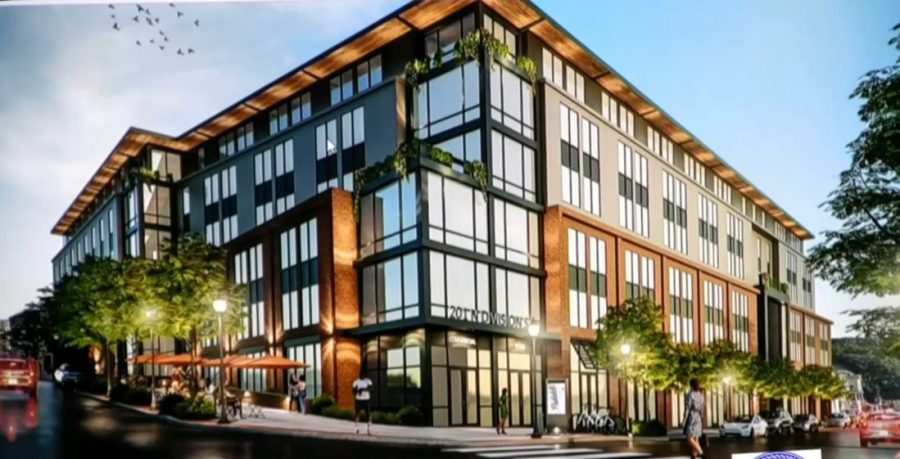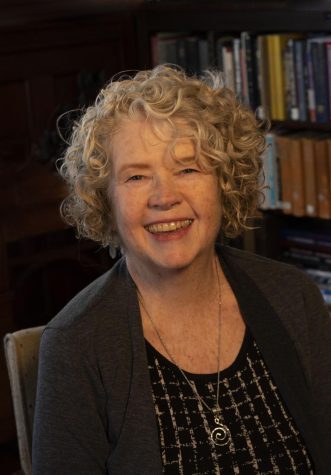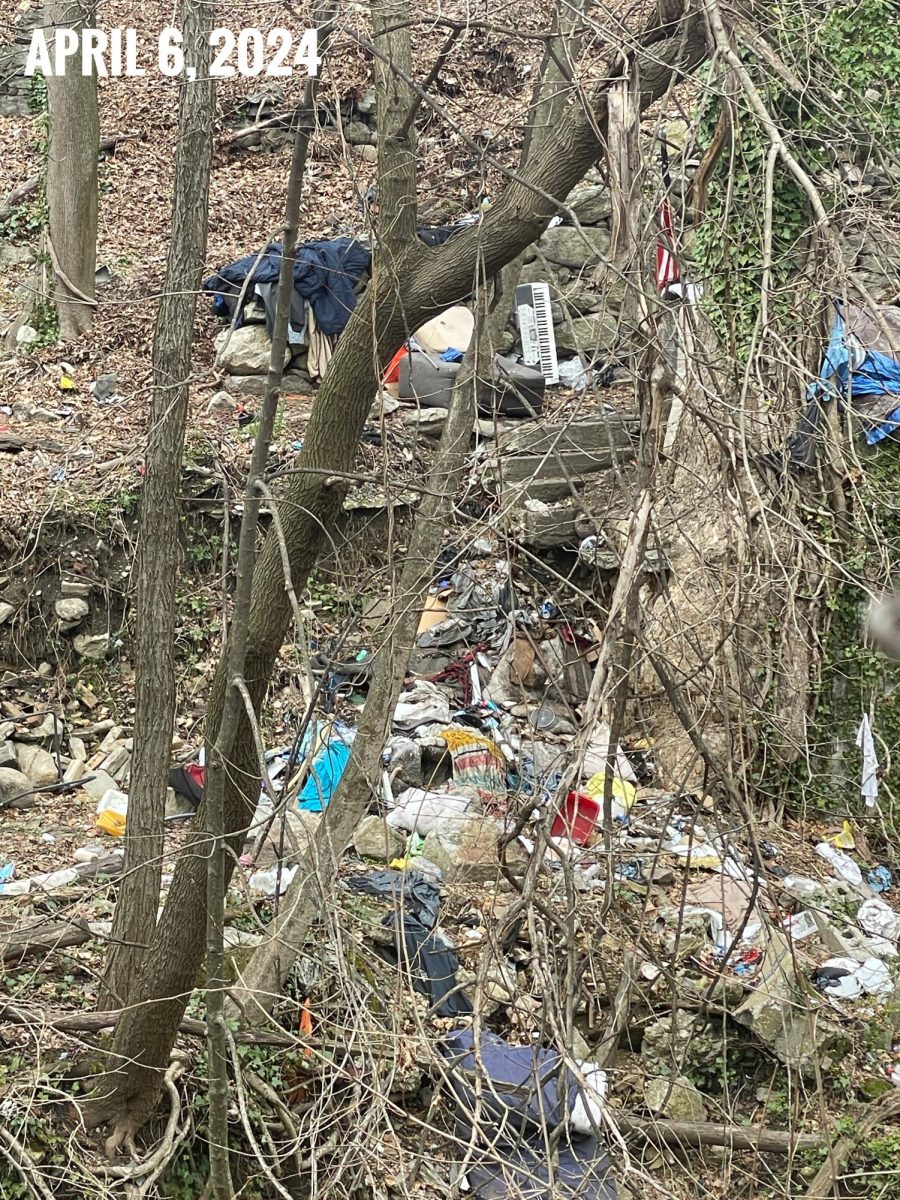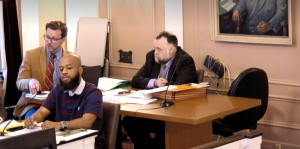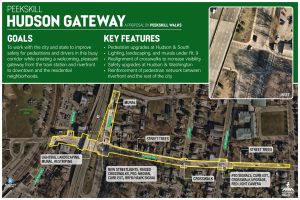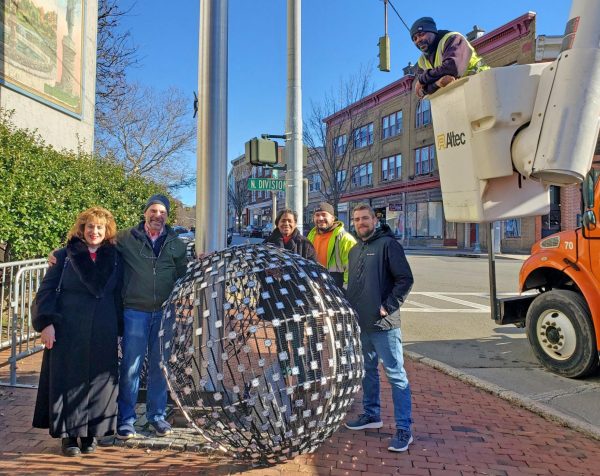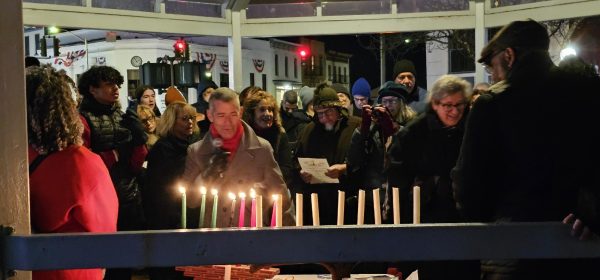Residents speak in favor of zoning change for North Division Street
Those opposed fearful of homes being plunged into darkness
Proposed zoning change would enable this development at North Division and Howard streets at the north end of downtown”
March 2, 2023
Peekskill Common Council members heard from the public Monday night about the proposed zoning change that would allow up to six stories in the commercial zone along North Division Street bordered by Howard Street to the south and Constant Avenue to the north. Of the residents who spoke at the meeting and those who submitted comments, the majority (16) were in favor of the change and three people expressed their opposition to the proposed change.
The Council will be discussing the amendment at the Committee of the Whole meeting on March 6 and will decide if they are ready to adopt in March or if they want to make more changes and continue the public hearing on March 27 according to the City’s Director of Planning Jean Friedman.
The zoning text amendment was recommended by the Planning Commission and incorporates a “bonus points” system allowing developers to build up to two extra floors beyond the “as of right” four stories in that district.
Under the proposed new zoning law, a developer must earn six bonus points to gain an extra 15 feet of height (one story). Paying into a city infrastructure fund or providing public infrastructure such as parking facilities, water, sewer, storm water management and flood control can net up to six points.

Another option to gain six points involves designating 15 percent of the housing units as affordable or “workforce” housing (instead of the city mandated ten percent). A final option to receive six points involves providing and managing a publicly accessible community center or an innovative public amenity within the development.
Developers can receive three points for making five percent of their required parking spaces available for electric vehicle charging stations within 50 feet of the main entrance of the building. Another three points can be gained by planting exceptional vegetation and landscaping on the property and by vegetating 25 percent of the total roof area while maintaining building coverage on their lot at 70 percent. Maximum building coverage on a lot can exceed 70 percent (up to 85 percent) if green vegetative space is placed on the roof, terraces, or exterior of the building.
Developer James Guerriero of Cornerstone Structures is proposing a project at 201 North Division Street at Howard Street and introduced the proposed zoning change back in September 2022. His project envisions a 125-unit structure with the upper floor stepped back.
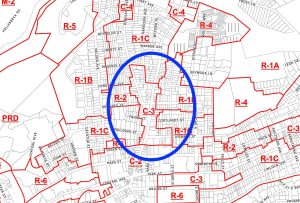
The property at 418 N. Division Street bordering Constant and Highland Avenues – formerly White Plains Linen – would be impacted by the zoning change as well. That property’s owner proposed a nine-story project last March.
Speaking in favor of the proposed changes was Ringgold Street resident Frederick Dennstedt, who invoked the late Chester A. Smith, author of the 1952 book, “Peekskill: A Friendly Town”, when he quoted from Smith’s work:
“Smith closes his book with a letter to two Peekskill students entitled ‘The Future of Peekskill.’ In the final paragraph of his letter, he writes, “May I express the hope that after all this you will say of Peekskill, as St. Paul said of his city of Tarsus in the long ago, “We are citizens of no mean city,” and that you will determine to leave it a little better than you found it.” I ask you to remember Mr. Smith’s words to the youth of Peekskill as you consider this amendment affecting the future of our city and the children who will come of age in it.”
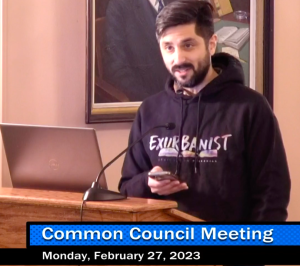
Dennstedt spoke from the perspective of his 16-month old son, Rico, who was born in Peekskill. “It’s our job as parents to do all we can to help our children realize their full potential and it’s our job as citizens to do the same for our city. If our children are partly a product of their environment, then that responsibility is compounded, because the city and its children are fundamentally linked.
“So the question is: what kind of city do Rico and his toddling cohort deserve as they move towards realizing their full potential?” continued Dennstedt. “What kind of city will help them realize that potential?
“Is it a city of decaying buildings and overgrown parcels, of single uses and car dependency, of scarce housing and rising rents, of impervious surfaces and toxic run-off?
“Or: do they deserve a city of investment and innovation, of creation instead of decay, of crumbling lots replaced with modern homes filled with potential new friends, new stores to shop and places to work, interesting and beautiful built places that compliment the interesting and beautiful surroundings, safe and engaging places that they can walk and bike to, freely able to express their independence from a first person perspective, not from the backseat of a car. A city of economic vitality and opportunity, a place of balanced and ample housing where they can find a place to live no matter where they fall on the economic spectrum. And if they end up on the high end of that spectrum — as we all hope they do — a city they want to stay and reinvest in, keeping their talents here instead of taking them elsewhere.”
Two restaurateurs spoke from the perspective of what increased population density can provide their businesses. John Sharpe who owns Birdsall House, Gleasons and a number of other eateries; and Lou Lanza of Rocco’s spoke of the need for more density in population in order to survive as a business. Sharpe mentioned his 100 plus employees who pay mortgages, rent, and send their kids through schools here. Increased population density increases the ability for employees to continue to contribute to the community. “Bringing new community members into the area can help our town be a better, safer town. I understand that people are fearful about change,” he added.
D. Henry wrote a letter opposing the zoning text amendment and wanted to know the cost of each bonus point and the impact the development would have on the crumbling infrastructure. Monday’s impending snowstorm caused Constant Avenue residents Leslie Lawler and Fred Vanca from attending in person. They both sent emails to the clerk to be read into the record. Their homes are at the northern edge of the zoning district and they are concerned about increased height plunging their homes into darkness, especially if the vacant White Plains Linen property is allowed to develop to six stories.
The current zoning code allows developers to apply for up to nine floors in that location.



